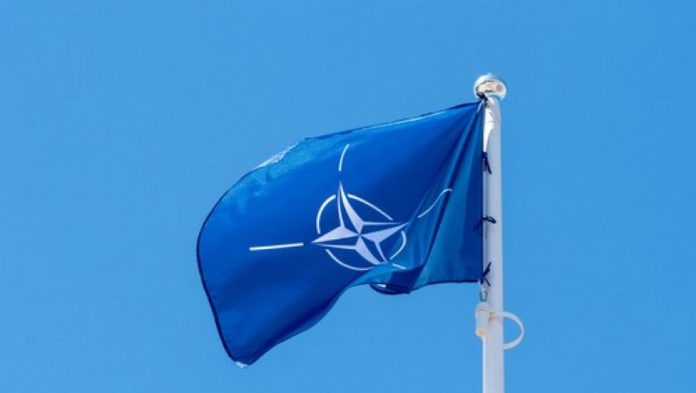Professor Dan Dungaciu says NATO accession has been for Romania not only a security matter, but also „the place where we were supposed to go to so as not to fall off the map,” adding that in this sense, after 1989 „Romanians’ strategic compass (…) has worked better than that of politicians.
„NATO has not only been a security matter to us, but also the place where we were supposed to go to so as not to fall off the map, (…) having a clear conscience that the path to the EU is infinitely more complicated and that we would not qualify for it anytime soon. This is where it all started from. Those who are outragedly saying today that Romanians are not West-oriented should think better about those moments, when Romanians chose the West at times even in spite of their political elites!,” Dan Dungaciu told AGERPRES.
He stressed that „Romanians’ strategic compass” had worked better after 1989 than that of politicians, in the context in which Romania „had restarted” the process of integration in European institutions „with a huge deficit.”
„The Ceausescu regime was naive and mediocre in relation to the changes that were coming, they didn’t understand or anticipate them, and for Romania the grounds had not been prepared or what was back then the introduction ideology, the symbolic geography, I called it, namely the ideological apparatus needed for the future integration. For Poland, Hungary, Czechoslovakia, the table had been set: the idea of ‘Central Europe’ (Mitteleuropa), the lost Europe, the forgotten Europe, the catholic and protestant Europe,” the professor said.
In his opinion, Romania’s problem was that NATO accession right after the fall of the regime was not inherently assumed, and it took implicit or explicit „public pressure” for the project to take its natural course.
„It took popular desperation not to be left behind! I repeat. This was NATO in a first instance for the Romanians. For us, and for the other countries. Besides, there was no viable alternative to the Western project. We were neither Ukrainians nor ‘Moldovans’. There was a split between East and West, in fact, there had been for a long time, and there still is, at least half of the population, who saw their future in relation to the East: CIS, Moscow, etc. (…) In our case, it was not that. It was either with the West or we were falling off the map,” the political analyst pointed out.
According to him, to assess where Romania is 20 years after joining NATO, we should look at Ukraine and the Republic of Moldova.
„We understand better by comparison. Where are Ukraine and the Republic of Moldova? After the fall of the USSR, these countries made the wrong choice. Without a clear identity in the 1990s, in fact they don’t have one today, Ukraine is in a violent and tragic process of identity reconfiguration (…). So, the major difference between us in the EU and NATO and the others is that no matter how much political turmoil we have, we are unstable in a stable environment. With the others, no matter how politically stable they are, they are stable in an unstable environment. In short, anything can happen to them at any time. As we see now, unfortunately,” explained Dungaciu.
Referring to President Klaus Iohannis’ decision to enter the competition for the post of NATO Secretary General, Dungaciu said that the war in Ukraine will play a „decisive” role in the election process.
„The background sound, if you will. The bass that will accompany the whole election process, so to speak, that’s not really an election, but a complex negotiation process. And that’s the way it should be: if you say NATO, you say Russia. NATO was created in 1949, as the name says, for the Atlantic Ocean, not the Pacific, namely to fight the USSR, specifically Russia. So it’s natural that Russia should be the stake, and it’s clear that the main mission of the future secretary general is to communicate politically on Russia, namely on developments in Ukraine. Depending on the decision taken by NATO allies, especially America, regarding the war in Ukraine – to continue, to make peace, to negotiate, etc. – I believe that the future profile of the secretary general will also be selected, so the person as such,” said Professor Dan Dungaciu.
AGERPRES




